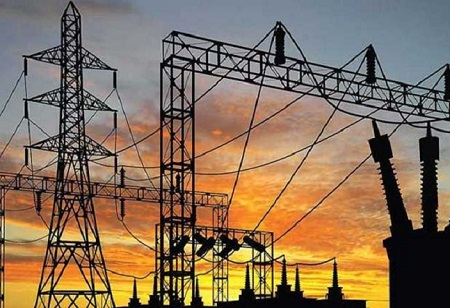An analysis on Tuesday identified Power Finance Corporation (PFC), and its subsidiary Rural Electrification Corporation (REC), as the sole state-owned financial institutions that provided project financing to coal power projects in 2020.
The fourth edition of Coal vs Renewable Financial Analysis 2020, authored by Climate Trends and Centre for Financial Accountability (CFA), found the State Bank of India (SBI) was the leading financier of renewable energy projects in 2020.
The report was released at CFA's annual energy finance conference hosted in collaboration with Indo German Centre for Sustainability and IIT Madras.
Lending to coal projects continued to remain depressed. 2020 marked a slight increase in coal funding after two years of consecutive decline. However, this is still over 85 per cent lower than Rs 60,767 crore ($9,350 million) this report identified in 2017.
"India's funding trends are in line with what we are seeing globally. Finance for new coal projects have increasingly been withdrawn with international institutions moving away from funding coal fearing reputational, economical, and fiduciary risk.
"Federal Bank, India's seventh largest commercial
bank, announced a coal exit policy this year becoming India's first bank to do so. PFC should follow in the footsteps of its private sector peers, move away from coal and towards renewable energy projects", said Joe Athialy, Executive Director, Centre for Financial Accountability.
Primary financing to renewable energy projects in 2020 saw an 11 per cent year-on-year increase. SBI's project finance loans to renewable energy projects in 2020 increased by a massive 334 per cent compared to 2019.
PFC provided Rs 2,160 crore ($289 million) in project finance loans to renewable energy projects in 2020, which is about 60 per cent of project finance it provided to coal projects.
"Analysis shows that India needs an investment of around Rs 38 lakh crore (or $ 500 billion) in this decade to reach its 450 GW of renewable energy goal. For this to happen, not just international funds, domestic financial institutions must also chip in. PFC and REC seem to be funding more coal than renewable energy, which is not in line with Central government's stated objectives, including the commitments to phase down coal and turn to net zero emissions in the long term," said Aarti Khosla, Director, Climate Trends.
"As renewables turn cheaper and easier to build, traditional institutions will realise that it is counter intuitive to keep funding more coal projects.
Rajasthan and Gujarat attracted Rs 18,671 crore ($2,507 million), or 77 per cent of all renewable energy loans. Bihar, for the second consecutive time, received funding for a new coal project.
India's domestic commitments far exceed its international climate commitments. Although India has announced its intention to update its Nationally Determined Contributions (NDCs) as required under the Paris Agreement, it has yet to officially submit its updated NDCs to the UNFCCC.
To reach 500 GW of non-fossils installed capacity, India needs to scale up its yearly capacity addition in wind and solar power. For this to happen, state-owned institutions and private banks need to make available cheaper finance for renewable energy projects.
